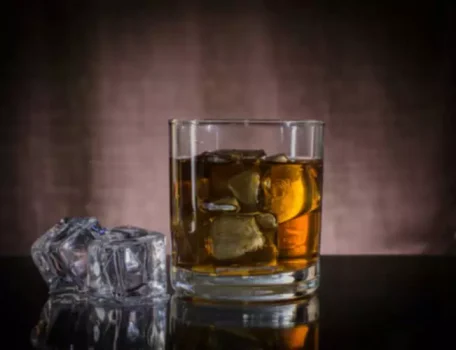
Sober curious is a term that means questioning your relationship with alcohol and thinking about trying sobriety, even if you are not ready to commit to it. Crystal Raypole has previously worked as a writer and editor for GoodTherapy. Her fields of interest include Asian languages and literature, Japanese translation, cooking, natural sciences, sex positivity, and mental health. In particular, she’s committed to helping decrease stigma around mental health issues. If you’re weighing the benefits of short-term sobriety, focus on what you’ll gain, not what you’ll lose.
The Sober Curious Movement Explained
- Still, abstaining from alcohol — on a short-term basis or longer term — is becoming more common.
- Warrington supports it with ample research and expert insights, crafting a sober-curious handbook intentionally written to help everyone lead a more fulfilling life.
- Suddenly, I had extra cash for the things that genuinely made me happy, like trips, self-care splurges, or even just saving for something special.
- In addition, abstinence challenges in particular may help encourage young adults to consider entering treatment for alcohol misuse.
- Below, we’ll get deeper into the question, “What is sober curious?
“Firstly, ask yourself, ‘What kind of life do I want to live and how does alcohol fit into it?'” advises Willoughby. Maybe you want to achieve more during your weekends, or marijuana addiction have more control over the amount you drink. Actively considering all these things, rather than continuing to blindly reach for a pint after a stressful day at work, is a great first step. If you’re considering sobriety, even temporarily, know that you are making a health-minded choice by going alcohol-free. According to the World Health Organization, there is no safe level of alcohol consumption that does not impact health.

Breaking The Booze Habit, Even Briefly, Has Its Benefits
Social media trends, such as the rise of the mocktail culture, further reshape societal perceptions of drinking and highlight enjoyable alternatives. According to NCBI, these online personalities often promote the idea that choosing not to drink or moderating alcohol consumption can be both pleasurable and sober curious beneficial. With societal pressures and alcohol’s undeniable ubiquity, abstaining from drinking or even cutting back can seem impossible. “Happy Healthy Sober” makes the argument that reaching your health goals and unlocking your happiest life is simply a matter of choice, but the complexity arises in seeing that you have the choice to begin with.

Improved relationships
Gen Z Australians were particularly proactive; 44% noted they were drinking less during lockdown, more than double the rate observed in older generations. In New Zealand, binge drinking rates among young people have decreased by over 50% from 2001 to 2012. For more insight into addiction and its various aspects, explore our pages on myths & misconceptions about addiction and habit vs. addiction. During the latter years of high school and the early ones of college, I remember impatiently counting down the months, days, (and if I’m being honest… seconds) until I turned 21. All around me, at dinners, meals out with family, and even watching SATC make Cosmos look cool, I looked on as people sipped charmingly from coupes and gracefully from glasses. Drinking, it seemed, was the epitome of elegance—and it was a natural milestone that would confirm my emergence into adulthood.
- Being sober curious may require a thoughtful approach and sometimes strategic planning, especially in social situations.
- Participants in Dry January or other temporary sober periods noticed an increase in their quality of sleep.
- A study published in JAMA Pediatrics found that the percentage of college-age students abstaining from alcohol has grown from 20 to 28% over the past twenty years.
- It’s about creating a life where alcohol no longer calls the shots.
- In a recent survey, 36% of Gen Z respondents cited mental health as their primary motivation for reducing alcohol consumption.
How to explore the sober curious movement

“When you discover that your personality and charisma are tied to you and not the ethanol in your drink, it can be an incredible realization that will help you decide what your journey looks like,” says Herman. While some studies suggest that a glass of red wine can be beneficial for cardiovascular health, experts widely agree that overconsumption of alcohol presents a problem. Reducing alcohol consumption comes with a bevy of positive side effects, ranging from improved mood, energy, and mental clarity to better sleep, digestion, skin, nutrient absorption, and protection of your internal organs.
- Giving up alcohol has become a wellness trend, but life inside the movement is not always what you expect.
- This doesn’t necessarily mean committing to never drinking again, but rather, choosing to be mindful about when and why they drink.
- Willoughby also encourages you to reflect on what you want your future to look like, as this could allow you to work out how changing your drinking could help you achieve that goal.
- One recommendation given by many experts is to begin by journaling.
Treatment & Support

In the United States, Gen Zers report a 60% alcohol consumption rate, which is lower than the 70% rate among those aged 35 to 54, and 52% among Baby Boomers. New establishments have also entered the market, with sober bars and shops opening across the country to meet the rising demand for alcohol-free products. The overall market for non-alcoholic beverages is projected to grow by 25% from 2022 to 2026, reflecting a shift towards moderation rather than total abstention 2. Kathryn Sauser on TikTok, shares that she drinks soda water and a lime when she goes out.
- The overall market for non-alcoholic beverages is projected to grow by 25% from 2022 to 2026, reflecting a shift towards moderation rather than total abstention 2.
- Suggest activities where alcohol isn’t the main event – like coffee dates, yoga classes, or evening walks.
- If you notice more energy, that you’re sleeping better, have fewer hangovers or see that your complexion has improved, for instance, write that down.
- Once you choose to go alcohol-free, connecting with like-minded people can help you feel less alone.
